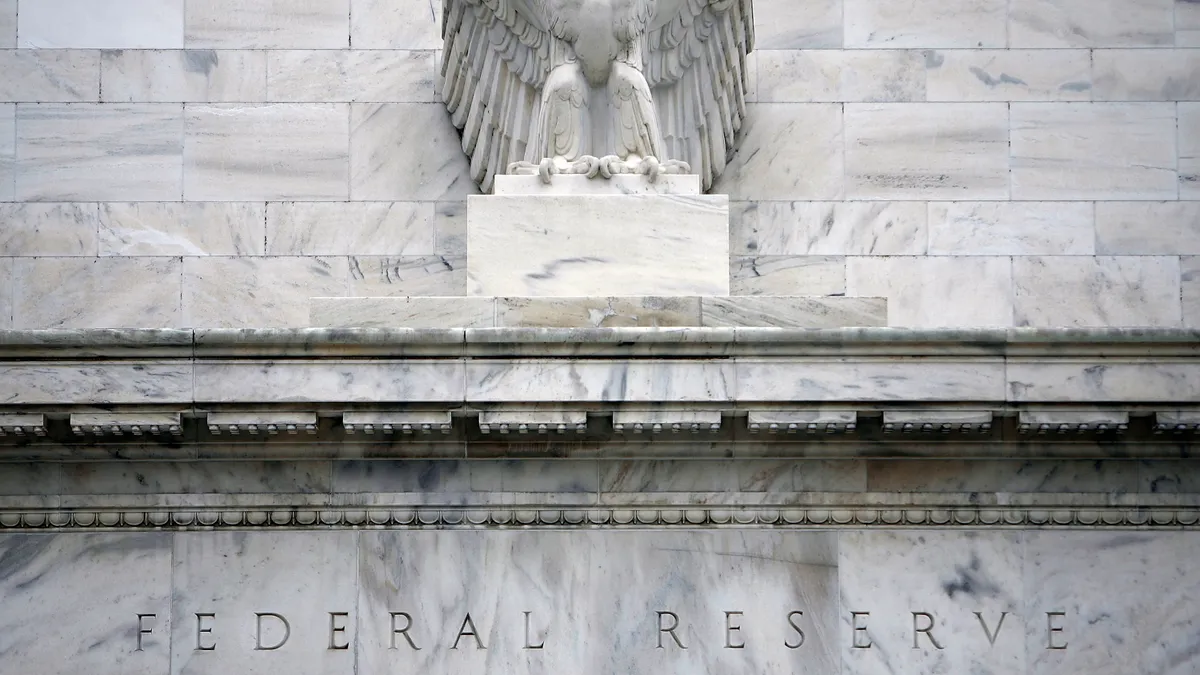Dive Brief:
-
North America-based CFOs expressed minimal confidence in the Federal Reserve’s ability to control inflation,CNBC’s Q2 Global CFO Council survey, released Monday, found. However, they hold an optimistic view of the near-term future for stock values.
-
As they navigate growing input costs and wage inflation, 41 global CFOs told CNBC price hikes might be needed if inflation trends continue.
-
U.S.-based CFOs named inflation as the biggest external risk factor facing their companies, surpassing the COVID-19 pandemic, cybersecurity concerns and consumer demand; virtually no CFO cited inflation as a concern in last quarter’s survey, CNBC said.
Dive Insight:
CNBC conducted the survey from June 1 to June 16, among 41 members of the CNBC Global CFO Council. Those surveyed manage more than $5 trillion in market value across sectors. The survey concluded on the second day of the Federal Reserve Open Market Committee meeting, at which inflation was principally discussed.
“Consumers are spending faster than businesses and governments can ramp up,” Diane Swonk, chief economist at Grant Thornton, told CNBC, which she said has resulted in friction upon reentry.
“The good news is that most of the inflation we’re seeing appears transitory,” she added. “The bad news is that it’s more severe and longer lasting than [the Fed] expected. There isn’t really any muscle memory for what we’re seeing. It’s the first time workers have had leverage since the [late] 1990s. Add the surge in retirement and loss in immigration, which was sliding rapidly pre-pandemic, and shortages are going to be more common.”
U.S. CFOs’ lack of confidence in the Fed’s ability to control inflation is concerning, Victor Li, a former Fed official who teaches economics at the Villanova University School of Business, told CNBC. “The cornerstone of the Fed’s price stability mandate is central bank credibility. Without a credible and transparent monetary policy, it will be impossible to anchor inflation expectations.”
Costs for both labor and supplies are expected to rise, with 57% of CFOs expecting labor costs to go up the most and 38% expecting raw materials to go up the most.
“I cannot recall one other time where inflation has been such a high risk factor among our members as it is now,” Jack McCullough, president of the CFO Leadership Council, told CNBC. “Their single biggest concern is recruiting and retaining. Inflation is the second biggest risk factor. Of course, a lack of available talent will spur inflationary cycles.”
CFOs are more confident in their ability to respond to inflation than in the Fed’s ability to control it, McCullough said.
Expectations for interest rate increases remain moderate, with 36% forecasting a yield on the 10-year Treasury note between 1.75% and 1.99% by December 31, a 19% jump from last quarter’s survey. Almost 30% forecast a yield between 1.5% to 1.74%, an 11% drop in those who held the view last quarter.
“The Fed cannot, nor should it, contain the flare in inflation. [It] is clearly transitory and will abate,” Swonk said. “If CFOs are really concerned the Fed can’t contain inflation over the longer term, which is a possibility, they should be forecasting much higher bond yields and locking into all they can at current rates.”
“Every day, I see more evidence of inflation not being transitory, and I am concerned that the Fed is falling behind, and that it may have to play catch up,” Mohamed El-Erian, Allianz chief economic advisor, said. “In a world in which the Fed has to play catch up, we end up with a recession, because you have to slam on the brakes as opposed to slowly taking your foot off the accelerator, which is what I believe is going to happen."














